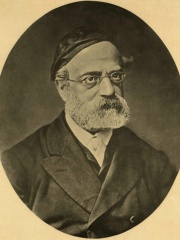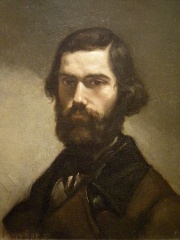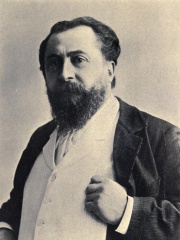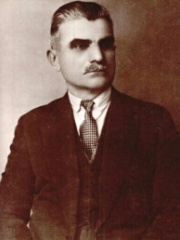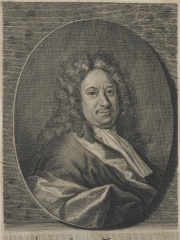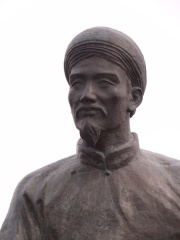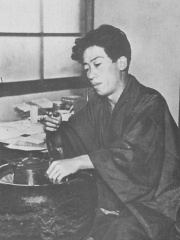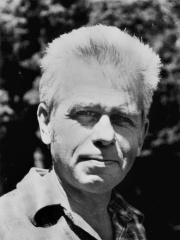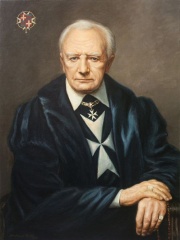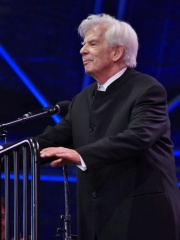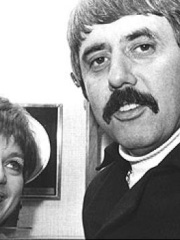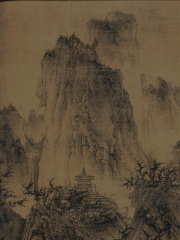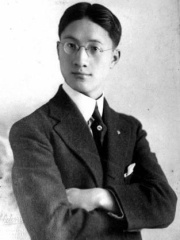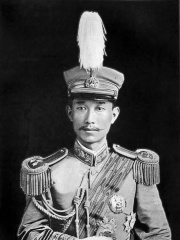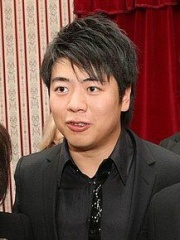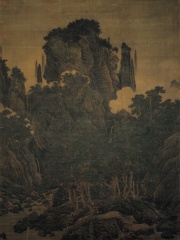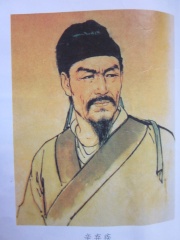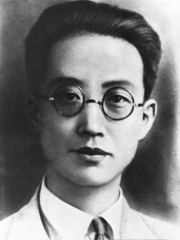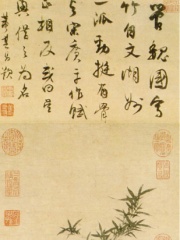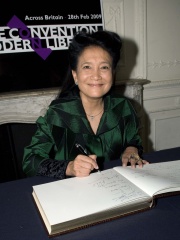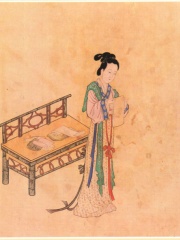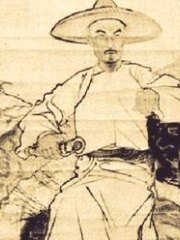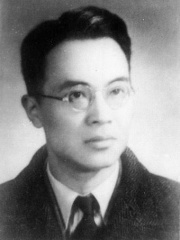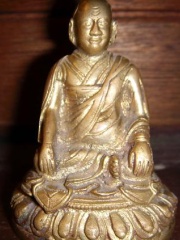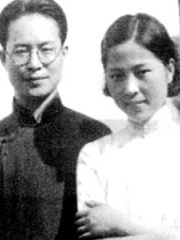Writer
François Cheng
1929 - Today
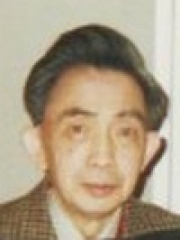
 François Cheng
François Cheng
François Cheng (Chinese: 程抱一; pinyin: Chéng Bàoyī; born 30 August 1929) is a Chinese-born French academician, writer, poet, and calligrapher. He is the author of essays, novels, collections of poetry and books on art written in the French language, and the translator of some of the great French poets into Chinese. Read more on Wikipedia
His biography is available in 21 different languages on Wikipedia. François Cheng is the 2,861st most popular writer (up from 2,968th in 2024), the 687th most popular biography from China (up from 721st in 2019) and the 75th most popular Chinese Writer.
Memorability Metrics
Page views of François Cheng by language
Among Writers
Among writers, François Cheng ranks 2,861 out of 7,302. Before him are Servius Sulpicius Rufus, Samson Raphael Hirsch, Unsuri, Jules Vallès, Catulle Mendès, and Tom Robbins. After him are Aleksandër Stavre Drenova, Ibn 'Abd al-Barr, Apostolo Zeno, Nguyễn Du, Takiji Kobayashi, and Judith Miller.
Most Popular Writers in Wikipedia
Go to all RankingsServius Sulpicius Rufus
100 BC - 43 BC
HPI: 60.73
Rank: 2,855
Samson Raphael Hirsch
1808 - 1888
HPI: 60.73
Rank: 2,856
Unsuri
980 - 1039
HPI: 60.72
Rank: 2,857
Jules Vallès
1832 - 1885
HPI: 60.72
Rank: 2,858
Catulle Mendès
1841 - 1909
HPI: 60.72
Rank: 2,859
Tom Robbins
1932 - 2025
HPI: 60.72
Rank: 2,860
François Cheng
1929 - Present
HPI: 60.71
Rank: 2,861
Aleksandër Stavre Drenova
1872 - 1947
HPI: 60.71
Rank: 2,862
Ibn 'Abd al-Barr
978 - 1071
HPI: 60.71
Rank: 2,863
Apostolo Zeno
1668 - 1750
HPI: 60.71
Rank: 2,864
Nguyễn Du
1765 - 1820
HPI: 60.70
Rank: 2,865
Takiji Kobayashi
1903 - 1933
HPI: 60.70
Rank: 2,866
Judith Miller
1948 - Present
HPI: 60.70
Rank: 2,867
Contemporaries
Among people born in 1929, François Cheng ranks 214. Before him are Shakuntala Devi, René Laloux, Julinho, Adrienne Rich, Edison Denisov, and Andrew Bertie. After him are Karl Koller, Christoph von Dohnányi, Link Wray, Eric Carle, Luigi Taveri, and Lee Hazlewood.
Others Born in 1929
Go to all RankingsShakuntala Devi
WRITER
1929 - 2013
HPI: 60.93
Rank: 208
René Laloux
FILM DIRECTOR
1929 - 2004
HPI: 60.91
Rank: 209
Julinho
SOCCER PLAYER
1929 - 2003
HPI: 60.75
Rank: 210
Adrienne Rich
WRITER
1929 - 2012
HPI: 60.75
Rank: 211
Edison Denisov
COMPOSER
1929 - 1996
HPI: 60.74
Rank: 212
Andrew Bertie
POLITICIAN
1929 - 2008
HPI: 60.74
Rank: 213
François Cheng
WRITER
1929 - Present
HPI: 60.71
Rank: 214
Karl Koller
SOCCER PLAYER
1929 - 2009
HPI: 60.69
Rank: 215
Christoph von Dohnányi
POLITICIAN
1929 - 2025
HPI: 60.63
Rank: 216
Link Wray
MUSICIAN
1929 - 2005
HPI: 60.62
Rank: 217
Eric Carle
WRITER
1929 - 2021
HPI: 60.61
Rank: 218
Luigi Taveri
RACING DRIVER
1929 - 2018
HPI: 60.61
Rank: 219
Lee Hazlewood
SINGER
1929 - 2007
HPI: 60.46
Rank: 220
In China
Among people born in China, François Cheng ranks 687 out of 1,610. Before him are Li Cheng (919), Mang of Xia (null), Xu Zhimo (1897), Cai E (1882), Guo Zongxun (953), and Lang Lang (1982). After him are Fritz-Julius Lemp (1913), Jiong of Xia (null), Zhang Ziyi (1979), Li Tang (1050), Xin Qiji (1140), and Qu Qiubai (1899).
Others born in China
Go to all RankingsLi Cheng
PAINTER
919 - 967
HPI: 60.85
Rank: 681
Mang of Xia
RELIGIOUS FIGURE
HPI: 60.79
Rank: 682
Xu Zhimo
WRITER
1897 - 1931
HPI: 60.77
Rank: 683
Cai E
POLITICIAN
1882 - 1916
HPI: 60.76
Rank: 684
Guo Zongxun
POLITICIAN
953 - 973
HPI: 60.73
Rank: 685
Lang Lang
MUSICIAN
1982 - Present
HPI: 60.72
Rank: 686
François Cheng
WRITER
1929 - Present
HPI: 60.71
Rank: 687
Fritz-Julius Lemp
MILITARY PERSONNEL
1913 - 1941
HPI: 60.67
Rank: 688
Jiong of Xia
POLITICIAN
HPI: 60.66
Rank: 689
Zhang Ziyi
ACTOR
1979 - Present
HPI: 60.64
Rank: 690
Li Tang
PAINTER
1050 - 1130
HPI: 60.63
Rank: 691
Xin Qiji
POLITICIAN
1140 - 1207
HPI: 60.62
Rank: 692
Qu Qiubai
POLITICIAN
1899 - 1935
HPI: 60.60
Rank: 693
Among Writers In China
Among writers born in China, François Cheng ranks 75. Before him are Guan Daosheng (1262), Jung Chang (1952), Han Suyin (1917), Xue Tao (768), Sima Tan (-165), and Xu Zhimo (1897). After him are Wu Jingzi (1701), Consort Ban (-48), Can Xue (1953), Qian Zhongshu (1910), Longchenpa (1308), and Shen Congwen (1902).
Guan Daosheng
1262 - 1319
HPI: 61.48
Rank: 69
Jung Chang
1952 - Present
HPI: 61.47
Rank: 70
Han Suyin
1917 - 2012
HPI: 61.34
Rank: 71
Xue Tao
768 - Present
HPI: 61.24
Rank: 72
Sima Tan
165 BC - 110 BC
HPI: 61.17
Rank: 73
Xu Zhimo
1897 - 1931
HPI: 60.77
Rank: 74
François Cheng
1929 - Present
HPI: 60.71
Rank: 75
Wu Jingzi
1701 - 1754
HPI: 60.23
Rank: 76
Consort Ban
48 BC - 6 BC
HPI: 60.17
Rank: 77
Can Xue
1953 - Present
HPI: 60.12
Rank: 78
Qian Zhongshu
1910 - 1998
HPI: 59.75
Rank: 79
Longchenpa
1308 - 1364
HPI: 59.68
Rank: 80
Shen Congwen
1902 - 1988
HPI: 59.66
Rank: 81

